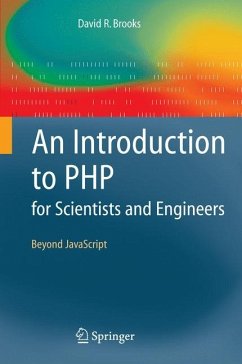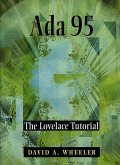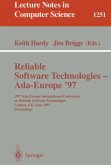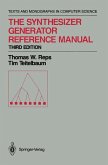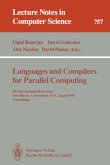The best way to become acquainted with a subject is to write a book about it. -Benjamin Disraeli i. Background The purpose of this book is provide an introduction to using a server-side programming language to solve some kinds of computing problems that cannot be solved with a client-side language such as JavaScript. The language is PHP (originally created in 1994 by Danish/Icelandic programmer Rasmus Lerdorf as "Personal Home Page Tools" for dealing with his own web site). The PHP language does not have a formal specification, as C does, for example. It is developed and maintained by a User Group of volunteers and is, essentially, defined by the most recently available free download. Although this might seem to be a shaky foundation on which to make a commitment to learning a programming language, PHP has a very large world-wide base of users and applications, which ensures its role into the foreseeable future. This book should not be considered as a PHP reference source and it does not deal exhaustively even with those elements of the PHP language used in the book. (This should be considered a blessing by the casual programmer. ) If you need more information, there is a huge amount of information online about PHP. Hopefully, this book will help you filter this information to focus on solving typical science and engineering problems. An excellent online source for information about PHP is http://www. php. net/manual/en/index. php, maintained by the PHP 1 Documentation Group.
From the reviews:
"This book on PHP for scientists and engineers is a slim volume--only 141 pages, including the index at the end. PHP texts usually focus on e-commerce applications, such as shopping carts, document generation, and Web services. ... quite suitable for handling problems in scientific or engineering data management and doing smaller scale calculations on this data. ... A set of programming exercises is provided at the end of the book." (Anthony J. Duben, ACM Computing Reviews, April, 2009)
"This book on PHP for scientists and engineers is a slim volume--only 141 pages, including the index at the end. PHP texts usually focus on e-commerce applications, such as shopping carts, document generation, and Web services. ... quite suitable for handling problems in scientific or engineering data management and doing smaller scale calculations on this data. ... A set of programming exercises is provided at the end of the book." (Anthony J. Duben, ACM Computing Reviews, April, 2009)

